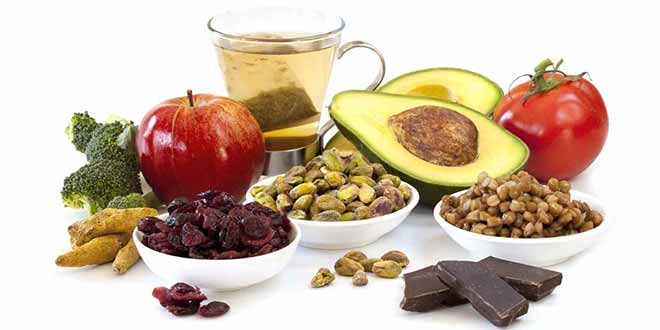
The Importance of a Balanced Diet
Food is a quintessential part of our lives, for it’s the fuel on which our body runs. We need food for energy and nourishment to perform the daily activities and to keep ourselves fit. However the problem arises when we talk about having healthy food, food that provides us with proper nutrition.
Healthy eating doesn’t necessarily mean depriving yourself of your favourites; you can certainly gourmandize the food that you love, but then balance it off with something healthy and nutritious.
One should develop his or her eating habits in such a way that one enjoys eating and it makes him happy, revitalizes him, and at the same time, equips him with adequate energy and nutrition to fulfil his needs for the day. Let us shed some light on the golden rules of healthy eating and nutrition that have been laid over decades.
Balanced diet
There are certain substances (in the form of food) called nutrients that are required by our cells to stay alive and support life. These sources of nourishment are classified into 2 classes: macro-nutrients (that which are required in large quantities) and micro-nutrients (that which are required relatively in small quantities).
The macro-nutrients include carbohydrates (i.e. the sugars and fibre) – instant sources of energy. They also contain proteins (composed of amino acids) – responsible for growth, repair and maintenance of body tissues.
Fats are also a part of this category as saturated fat (obtained mostly from animals) and unsaturated fat (of plant origin) – Rich source of energy acts as a storage form of energy and provides insulation to the body, hence conserving heat.
On the other hand, the micro-nutrients include around 16 minerals that are required by our body to serve structural and functional roles, essential for biochemical processes like sodium, potassium, chloride, iron, calcium etc.
Vitamins are also needed by the body as they are needed in trace amounts for proper functioning of enzymes involved in metabolism.
Hence, each nutrient has its own importance and its function cannot be replaced by another. A deficiency of any one of them could lead to serious disorders, which can only be treated by the supplementation of the particular nutrient that was deficient.
On the contrary, an overdose could also lead to toxicity; hence care must be taken to consume them in adequate amounts for some need to be taken in daily while others are actually stored in the body for later use.
All of them interact with each other and collectively work as a team, supporting various metabolisms and enabling proper functioning of the body. Therefore, one needs to include appropriate amounts of all of them in our diet and have what is called a balanced diet. So, pay heed to what’s on your plate.
A balanced diet could turn out to be the best medicine, ridding you of all the weight complaints, mood disorders, and several diseases. It could be the reason of the smile on your face when you look at yourself in the mirror!
Calories
A term that everyone has heard of and a term that the weight conscious are particularly wary of.
Of all the nutrients listed above, energy is provided by only 3 of them, namely carbohydrates, proteins and fats. Energy is the fuel of our body; it is what makes us going and the reason behind being refreshed all day. The slightest of activities can’t be performed if the body fails to produce energy.
So what does the term calorie signify? Calorie is a term given to the energy contained in a molecule of protein, carbohydrate or fat. It is the measure of energy that a body receives when consuming a diet of carbs, protein and fat, or even the amount of energy that a body spends in daily activities.
Hence, overweight people are asked to lose as many ‘calories’ as possible due to which they amusingly describe calories as ‘insects that scuttle into your wardrobes and make your clothes tighter’
How are calories measured?
Basically, energy is obtained from our diet by the oxidation of food that occurs inside our body. Therefore, in order to measure the energy contained in the food, we use the principle of combustion through the bomb calorimeter, which is an instrument that measures the heat of chemical reactions.
The food is burnt in a metal chamber that is placed in well insulated vessel of water. The heat energy is transferred to the water; hence, the thermometer is placed to check the temperature of water. The temperature of the water would indicate the amount of calories burnt as one calorie is the energy needed to raise the temperature of 1 gram of water by 1 degree centigrade.
Therefore, the energy values of 1 g of carbohydrates and proteins each are estimated to be 4 calories, while that of fat, is calculated to be 9 calories, due to which it is considered as a rich but stored form of energy in the body. Moreover, alcohol, although not a nutrient, also serves as an energy source when metabolized. Its energy value is 7 calories per gram.
All in all, the concept is that of energy balance, which is dependent upon a person’s basal metabolic rate. One needs to strike a balance between energy consumption with daily activity.
Diet should be formulated in such a way that one consumes only so much of calories that is required for daily activities. In cases of over consumption, the extra calories tend to convert into fat, resulting in
Obesity. Then the person should resort to reduced food intake and regular exercise. Hence, an energy balance helps in controlling weight, as well as contributes to health.

